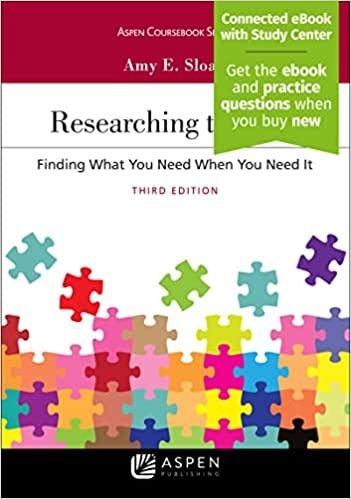Question
Colby Homuth was a teenager who had a provisional driver's license that required the supervision of an adult whenever he was driving a vehicle. On
Colby Homuth was a teenager who had a provisional driver's license that required the supervision of an adult whenever he was driving a vehicle. On the day of the accident, Colby was driving his parent's automobile with the sole passenger being his grandmother, Berniece Homuth (Homuth). As Colby turned to go left onto another street, a motorcycle driven by Ronald Cline struck the back of Colby's vehicle. Cline was severely injured and suffered numerous broken bones. The traffic collision report concluded that Colby caused the accident. Colby's parents, Wade and Leslie Homuth, had automobile insurance with a policy limit of $100,000 for bodily injury. Cline's attorney made a demand for the policy limit and the insurance company paid the claim. Cline executed a release prepared by the insurance company that released the driver and his parents "and any other person, corporation, association, or partnership responsible in any manner or degree" from any further liability for the accident. Cline later sued Colby's grandmother, Berniece Homuth, for negligent supervision. Homuth defended, arguing that she was an intended beneficiary of the release that Cline signed. The trial court granted summary judgment to Homuth. Cline appealed.
Issue Was Berniece Homuth an intended beneficiary of the release signed by Cline?
What is the difference between an intended third-party beneficiary and an incidental beneficiary? Do you think that Homuth was an intended beneficiary of the release? Why or Why not?
Step by Step Solution
There are 3 Steps involved in it
Step: 1

Get Instant Access to Expert-Tailored Solutions
See step-by-step solutions with expert insights and AI powered tools for academic success
Step: 2

Step: 3

Ace Your Homework with AI
Get the answers you need in no time with our AI-driven, step-by-step assistance
Get Started


